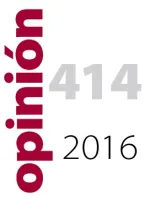Printing Money will not Cure Algeria’s Economic Ills

* This article was previously published in The Arab Weekly
The sacking of the governor of the Central Bank of Algeria did not make headlines outside the country. However, the departure of Mohammed Laksaci and his replacement by Mohamed Loukal, the head of the Banque Extérieure d’Algérie, one of the pillars of what remains an ossified banking system, spells trouble for the country’s economic management.
The new governor is neither a good macro-economist nor a savvy politician, which suggests he will be more willing than his predecessor to follow the dictates of his political masters who balk at the need to engage in the wide-ranging structural reforms that the International Monetary Fund (IMF) insists “are needed to help support economic activity during the fiscal consolidation and to diversify the economy".
The effect of the oil price decline on growth has been limited in Algeria. In 2015, the gross domestic product (GDP) grew 3.9% and inflation has held at 4.8%. However, the fiscal deficit doubled to 16% of GDP and the current account deficit has widened. Reserves stood at $143 billion in December and external debt is negligible. Exchange rate depreciation helped the country cushion the shock and limited the external deficit but considerable fiscal adjustment is essential.
The sacking of Laksaci suggests this is not the direction the government wants to take. It will sit the crisis out and do anything to avoid a repeat of the late 1990s when very bold economic reforms were launched in an attempt to modernise a command economy.
Prime Minister Abdelmalek Sellal is, however, no Mouloud Hamrouche, who ran the government from 1989-91. Hamrouche had a bold vision of a politically and economically more liberal Algeria. He gave the Bank of Algerian autonomy and the then president appointed a governor who commanded widespread respect.
Laksaci was sacked without a word of thanks from the government after 15 years of loyal service to President Abdelaziz Bouteflika. The president’s closest advisers, who are in practice running Algeria as the head of state is very sick, were keen to get rid of a man who, for all his loyalty and eagerness to cover up endless financial scandals over the years - notably the collapse of Khalifa Airways and Khalifa Bank - had an intimate understanding of the inner workings of the Bank of Algeria and how tens of billions of dollars of ill-begotten money found their way to accounts abroad.
Laksaci joined the Bank of Algeria in 1990, when he was in charge of the research department. He became governor after the central bank lost autonomy in 1999 and its governor, Abdelwahab Keramane, was dismissed. Keramane had made sure, after being appointed, that the Bank of Algeria kept its personnel, which was highly professional. He was also politically nimble.
In sharp contrast, Laksaci eviscerated senior staff at the central bank. His unexpected appointment is explained by his membership in the main zaouia (religious fraternity) in his home town of Adrar and the protection of its leader, Cheikh Belkebir, whom Bouteflika has long consulted.
Laksaci came under sustained attack from many deputies of the main party in parliament, the National Liberation Front for his warnings about the degraded state of the country’s public finances. He was intimating that a policy of priming the monetary pump should be avoided and that state spending should be held in check.
His mildly worded warnings infuriated deputies, who, alongside other members of the nomenklatura, had grown accustomed to sharing the plentiful resources offered by high oil and gas prices for more than a decade.
The abuse heaped on Laksaci in parliament and in part of the media was the writing on the wall. Algeria’s political leaders are refusing to face up to the major economic and financial crisis the country faces. No amount of warnings, by local economists, private sector businessmen and former ministers or central bank governors, let alone the IMF seem to have the slightest effect on the prime minister, who seems determined to bury his head in the sand.
Algeria’s population has more than doubled since 1970 when the country was led by Houari Boumediene: 30% of Algeria’s GDP was invested in the industrial sector, a figure that has fallen to 10% in the past decade. However misguided some of the projects initiated a generation ago were, they spoke of a noble ambition to educate and improve the living standards of the mass of Algerians.
Nearly one-third of Algerians between the ages of 15 and 24 are unemployed and poverty is growing. Since the turn of the century, overpriced and badly built infrastructure projects and financial scandals have proliferated. The sacking of Chakib Khelil as minister of Energy in 2009 and corruption cases involving state oil and gas company Sonatrach have dogged Algerian politics ever since.
It is only a matter of time before harsh reality intrudes but no doubt the new governor will oblige and resort to the printing press. Instead of calling in Algeria’s brightest and launching bold reforms, Algerian leaders are hunkering down and waiting for better days. None of Algeria’s neighbours, which are desperate for stability on the southern shores of the Mediterranean can relish the turn events have taken in Algiers.
D.L.: B-8439-2012